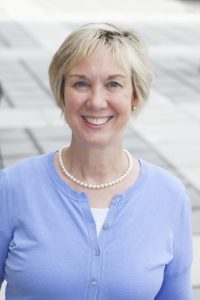
The fall 2013 issue of Carolina Arts & Sciences is brimming with examples of how faculty research and student learning opportunities in the College are shaping our graduates and our world.
The Center for the Study of the American South has been exploring the history, challenges and diversity of the region for two decades, and the Southern Oral History Program has been documenting regional stories for 40 years. Their historic front porch at the Love House and Hutchins Forum on Franklin Street symbolizes their role as a portal to the South. Our pages invite you in to sit a spell.
U.S. News & World Report recently cited biomedical engineering as the No. 1 new college major with a future, and The New York Times said it was the No. 1 field “where the jobs are.” The College offers an undergraduate degree through a new partnership with the School of Medicine. You can read about how our undergrads are creating biomedical devices to help people with disabilities.
This issue also features alumni who remember the experiences gained through the College that influenced the amazing work they are doing today in North Carolina and the world.
Three UNC alumni archaeologists have uncovered the earliest European settlement in the interior of the United States in Morganton, N.C., and were recently featured in The New York Times. They also are developing a major heritage tourism project associated with the site.
Alumnus Rod Brooks ’89 is the president and CEO of Stop Hunger Now, an international hunger relief organization based in Raleigh. Brooks can trace his entire career path to his study abroad experience at Carolina.
Sallie Senseney ‘10 is inspiring high school students as a biology teacher in her hometown of Burnsville, N.C., in rural Yancey County. She’s a graduate of the UNC-BEST Program, a unique collaboration between the College and the School of Education that is addressing North Carolina’s teacher shortage. Through the program, science and math majors obtain undergraduate degrees and teaching credentials in four years.
Carolina students are gaining a better understanding of the human complexities of immigration through experiential programs offered by the UNC Latino Migration Project in Guanajuato, Mexico. About 70 percent of alumni who participated in these programs are now working in fields affected by migration — many in K-12 education, public health or law.
Thanks to the vision and support of alumnus Lucius E. Burch III, our students have had life-transforming experiences around the world. As we look back at 20 years of this program, we feature three alumni whose Burch Fellowships in China, Jerusalem and the Canadian Arctic shaped their career paths.
Throughout these pages, you’ll read about how students are partnering with faculty on exciting research. You’ll learn about curricular innovations, such as our new master’s degree in global studies, and a $500,000 grant we received to be a national project site for transforming undergraduate education in the science, technology, engineering and mathematics (STEM) disciplines.
Many of these achievements have been made possible by alumni and friends, and we thank them for their ongoing support in our annual Honor Roll. We also want to remember Frank Borden Hanes Sr., the founding chairman of the Arts and Sciences Foundation, who passed away in July. His leadership and generosity have left a lasting impact on programs that will continue to benefit generations of Tar Heels.
Karen M. Gil
Dean
